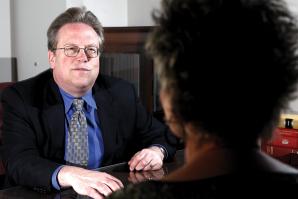California is running out of money, pure and simple. As we go to press, the state is finalizing the budget and lurching from one financial crisis to the next thanks to elected leaders who put politics above fiscal responsibility.
We now face a budget deficit of more than $26.3 billion, and the state has been forced to issue IOUs to preserve its dwindling supply of cash. It has very little access to borrowed money due to fragile credit markets and the state’s poor credit rating, the worst in the country. There’s no relief in sight: A deteriorating economy means personal income — and therefore tax revenue — is falling in California for the first time since the Great Depression.
As things go from bad to worse, we face the almost unimaginable task of cutting billions of dollars in aid to schools and colleges, prisons, and health and welfare programs. But we have no choice. We want great schools but limited property taxes. We want more prison time for criminals but lower prison budgets. We’ve been trying to do too much for too many people by going into debt.
Forget bailouts and the temporary gimmicks that have been used for years to mask a broken system. What we can and must do is use this crisis as a catalyst for an overdue reform, not simply of the budget process, but of the way we manage our state. Let’s begin with those elements of state government that have made it almost impossible for California to pay its bills and govern itself effectively.
First, we need to change the requirement for a two-thirds vote in the Legislature to pass a budget. The 49 states where a simple majority passes budgets act in a far timelier and more efficient manner than California. While we’re at it, we should mandate a two-year budget rather than an annual one that encourages short-term thinking.
Second, change the initiative process. It has helped produce a crazy-quilt fiscal scheme with voters walling off parts of the budget for very narrow purposes and leaving important programs underfunded. We use initiatives too much, an average of 10 a year, with too many special interests bankrolling them. We are the only state that doesn’t allow legislators to override initiatives, and we have no sunset clauses allowing them to expire.
Third, recognize that many elements of state government are fundamentally broken and require long-term change. Two groups are currently leading the call for reform: California Forward and the Bay Area Council.
California Forward, a bipartisan group, proposes incremental change. For example, the group calls for appointing a commission to propose wider budget reforms that would go before the voters. The Bay Area Council, a business advocacy group, argues for a constitutional convention that would debate and change those parts of the state constitution that cover governance and the budget process. It hopes to place two measures on the 2010 ballot.
Both approaches have merit and recognize the critical fact that we simply cannot continue the status quo. Change must come — and will come if we join our voices now, before our once golden state deteriorates even further.
Recommended For You

Lost and Fund
Counties hold off on muni bonds due to uncertainty
After a jarring sell-off and resulting glut, there’s just one word for today’s municipal bond market: precarious.

Uncertain Fate
The future of workers' comp insurance
The only thing certain in the world of California workers’ compensation insurance right now, is that it’s uncertain.


